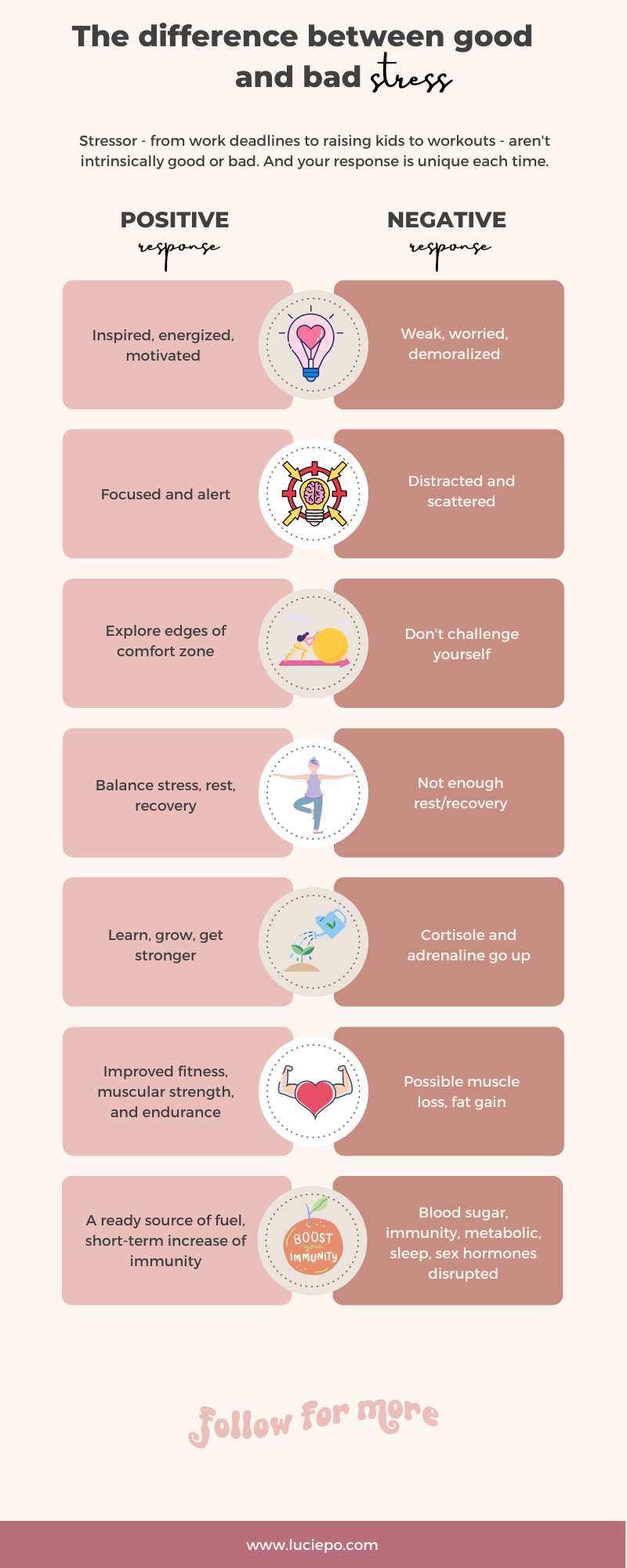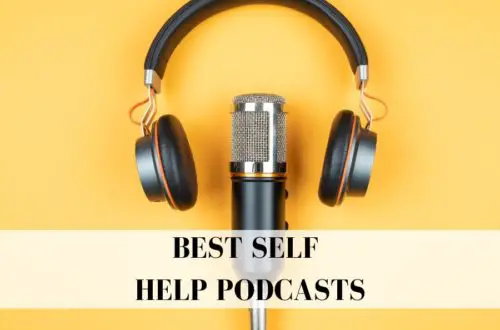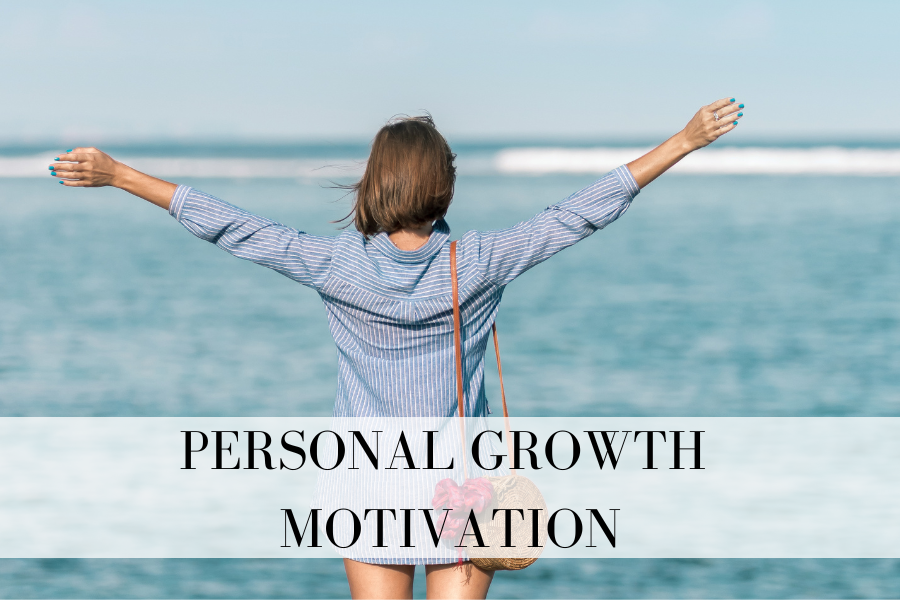
15 Stress Coping Strategies: Finding Your Inner Zen In Turbulent Times
We all experience stress at some point in our lives – it’s a natural response to life’s challenges. But when stress becomes overwhelming, it can take a toll on our mental and physical well-being. The good news is that there are effective stress coping strategies to help you navigate through turbulent times and find your inner Zen. In this article, we’ll explore 15 stress coping strategies that can empower you to face life’s ups and downs with resilience and grace. So, let’s take a deep breath and embark on this journey towards a more peaceful and balanced life.
Too little stress keeps you from reaching your potential.
Too much stress can harm your health.
Understanding Stress: Unravelling the Science Behind It
Stress is an innate survival mechanism that prepares us to face danger and react swiftly in challenging situations. In ancient times, this fight-or-flight response helped our ancestors escape from predators or tackle immediate threats. However, in the modern world, our stress response can be triggered by a myriad of factors – from demanding workloads to personal pressures and everything in between.
While stress can sometimes be a motivator, prolonged and chronic stress can have detrimental effects on our mental, emotional, and physical health. The key is to understand how stress affects our mind and body and equip ourselves with powerful coping strategies to navigate through life’s stormy seas.
What is the difference between good and bad stress
Stress is a natural response to life’s challenges and demands, but not all stress is created equal. Understanding the difference between good and bad stress is essential for managing its impact on our overall well-being.
Good Stress (Eustress)
Good stress, also known as eustress, is a positive form of stress that can be motivating and beneficial. It occurs when we face manageable challenges or exciting events that push us outside our comfort zones. Eustress can enhance our performance, boost creativity, and help us achieve our goals. For example:
1. Meeting Deadlines: The pressure of meeting a deadline can drive us to stay focused and perform at our best.
2. Preparing for an Event: Anticipating a special occasion can trigger positive excitement and energy, adding to the joy of the experience.
3. Taking on New Opportunities: Embarking on a new job or project can be invigorating, fostering personal and professional growth.
Eustress is a natural part of life and is often associated with feelings of excitement, enthusiasm, and fulfillment. It plays a significant role in challenging us to reach our potential and achieve greatness.
Bad Stress (Distress)
Bad stress, or distress, is the negative form of stress that arises when we face overwhelming or prolonged challenges that exceed our ability to cope. Distress can lead to harmful physical and emotional consequences if not managed effectively. Some examples of distress include:
1. Chronic Workload: An excessive workload without sufficient resources or support can lead to burnout and a decline in overall well-being.
2. Financial Strain: Constant financial worries can lead to anxiety and negatively impact mental health.
3. Relationship Conflicts: Prolonged conflicts in personal relationships can cause distress and emotional strain.
Distress can manifest in various ways, such as anxiety, irritability, fatigue, and even physical symptoms like headaches or stomach issues. Recognizing distress early allows us to take proactive steps to address its underlying causes.
Stress is cumulative
Stress is not always limited to isolated events; it can accumulate over time, gradually affecting our physical, emotional, and mental well-being. Understanding the concept of cumulative stress is crucial for recognizing its impact and taking proactive steps to manage it effectively.
The Snowball Effect
Cumulative stress, often referred to as the “snowball effect,” occurs when stressors build up and intensify over time, much like a snowball rolling down a hill, gaining size and momentum as it goes. What may start as minor stressors can quickly accumulate into a significant burden on our overall health and happiness.
Daily Hassles
Daily hassles, such as traffic jams, long work hours, or financial worries, may seem minor individually, but their constant presence can contribute to cumulative stress. These ongoing stressors can slowly erode our resilience, making us more susceptible to feeling overwhelmed.
Chronic Stress
Chronic stress, which persists for an extended period, is a primary driver of cumulative stress. It may result from ongoing challenges like job dissatisfaction, relationship difficulties, or health problems. When we don’t have adequate time to recover from one stressor before facing the next, our ability to cope becomes compromised.
Health Implications
Cumulative stress can take a toll on our physical and mental health, leading to various issues such as:
1. Physical Health: Prolonged stress can weaken the immune system, contribute to cardiovascular problems, and exacerbate conditions like headaches, digestive issues, and chronic pain.
2. Mental Health: Cumulative stress is associated with anxiety, depression, and other mood disorders. It can also impact cognitive functions like memory and concentration.
3. Emotional Well-being: The persistent burden of stress can lead to emotional exhaustion, irritability, and reduced enjoyment in life.
The Impact of Stress on Your Mind and Body
When stress becomes chronic, it takes a toll on every aspect of our being. Mentally, it can lead to anxiety, overwhelm, and difficulties in concentration. Emotionally, it can cause irritability, mood swings, and a sense of helplessness. Physically, stress can manifest as headaches, muscle tension, and even digestive issues.
The good news is that you have the power to manage stress and build resilience in the face of challenges. By incorporating stress coping strategies into your daily life, you can transform how you respond to stress and cultivate a greater sense of calm and balance.
The Power of Mindfulness: Embracing the Present Moment
Mindfulness is the art of being fully present in the moment, observing your thoughts and emotions without judgment. It’s about tapping into the power of now and letting go of worries about the past or the future. Mindfulness can be practiced through meditation, but it’s not limited to sitting still on a cushion. It can be woven into your daily activities, from eating mindfully to savoring the small moments in life.
The Healing Benefits of Mindfulness
Research shows that regular mindfulness practice can have a profound impact on reducing stress and promoting overall well-being.
Mindfulness has been linked to numerous benefits, including:
- Reduced Stress: Mindfulness helps activate the body’s relaxation response, reducing stress hormones and promoting a sense of calm.
- Improved Focus and Concentration: Regular practice enhances cognitive functions, leading to improved focus and concentration in daily tasks.
- Enhanced Emotional Regulation: Mindfulness allows you to observe emotions without becoming overwhelmed, leading to better emotional regulation.
- Greater Resilience: By cultivating present-moment awareness, you build resilience and bounce back stronger from life’s challenges.
Practicing Mindfulness Meditation
Mindfulness meditation involves dedicating a few moments each day to sit quietly and focus on your breath or a specific point of attention. As thoughts arise, you gently bring your focus back to the present moment. This practice helps calm the mind, reduces stress, and cultivates a greater awareness of your thoughts and feelings.
Finding Mindful Moments in Daily Life
You don’t need to be on a meditation cushion to practice mindfulness. You can infuse mindfulness into your daily routine – whether it’s savoring the taste of your morning coffee, noticing the beauty of nature during a walk, or being fully present while spending time with loved ones.
Unleashing the Magic of Self-Care: Nurturing Your Soul
Self-care is more than just pampering yourself; it’s a crucial act of self-compassion and nourishment for your well-being. Embracing self-care rituals replenishes your energy, restores balance, and fosters a deeper connection with yourself.
Prioritizing Your Well-Being
Make self-care a non-negotiable priority. Allocate time for activities that bring you joy and fulfillment, whether it’s reading a book, taking a bubble bath, or engaging in hobbies.
Creating a Personal Self-Care Routine
Design a self-care routine that suits your lifestyle and preferences. It can be as simple as a morning meditation or a daily gratitude practice. Consistency is key to reaping the benefits of self-care.
Embracing Self-Compassion
Treat yourself with the same kindness and understanding you would offer a dear friend. Be gentle with yourself during challenging times and acknowledge that it’s okay to take breaks and ask for help.
Movement as Medicine: Revitalizing Your Body
Physical activity is a powerful stress-buster that not only benefits your body but also enhances your mental well-being. Engaging in regular exercise boosts mood, reduces anxiety, and increases overall vitality.
The Joy of Exercise
Find an exercise routine that you genuinely enjoy, whether it’s dancing, cycling, or yoga. When you love what you do, it becomes less of a chore and more of a delightful experience.
Exploring Mind-Body Practices like Yoga and Tai Chi
Mind-body practices like yoga and tai chi combine movement with mindfulness, promoting a harmonious balance between body and mind. These practices foster inner peace and promote a sense of unity.
Dance Your Worries Away
Dancing is a joyful and expressive way to release stress and uplift your spirits. Turn on your favorite music and let go of inhibitions as you dance to the rhythm of your heart.
The Art of Letting Go: Managing Stressful Thoughts
Stressful thoughts can amplify feelings of anxiety and overwhelm. Learning to manage these thoughts is essential for maintaining emotional well-being.
Identifying and Challenging Negative Thoughts
Become aware of negative thought patterns and question their validity. Challenge the accuracy of these thoughts and replace them with more empowering affirmations.
Practicing Acceptance and Letting Go
Accept that you cannot control everything in life and embrace the art of letting go. Cultivate an attitude of acceptance towards the things you cannot change.
Cultivating a Positive Mindset
Focus on the positive aspects of your life and practice gratitude daily. Shifting your focus to the good things around you helps rewire your brain for positivity.
Seeking Support: The Power of Connection
Social connections play a vital role in our ability to cope with stress. Surrounding yourself with a supportive network of friends and loved ones provides a safety net during challenging times.
Opening Up to Loved Ones
Share your feelings and experiences with trusted friends or family members. Talking about your stress can provide relief and emotional validation.
Reaching Out to Support Groups
Joining support groups or online communities with individuals experiencing similar challenges can offer valuable insights and a sense of belonging.
Consulting a Professional
If stress becomes overwhelming or interferes with your daily life, consider seeking support from a mental health professional. Therapy can be a valuable resource for developing coping strategies and building resilience.
Nature’s Soothing Embrace: The Healing Power of the Outdoors
Nature has a remarkable ability to soothe and rejuvenate. Spending time outdoors can be a balm for the soul, providing respite from stress and offering a sense of serenity.
Finding Serenity in Nature
Spend time in green spaces, whether it’s a nearby park or a secluded forest trail. Let nature’s tranquility envelop you as you disconnect from the hustle and bustle of daily life.
The Science of Ecotherapy
Ecotherapy, also known as nature therapy, is a therapeutic approach that encourages outdoor activities to improve mental health. Engaging in ecotherapy can reduce stress and promote overall well-being.
Connecting with Mother Earth
Practice grounding or earthing by walking barefoot on natural surfaces like grass or sand. This simple act can enhance feelings of peace and connection with the Earth.
The Pleasure of Play: Embracing Your Inner Child
As adults, we often forget the joy of play. Engaging in playful activities reconnects us with our inner child and allows us to experience the world with wonder and delight.
Rediscovering Playfulness
Try activities that evoke joy and curiosity, whether it’s playing board games, building sandcastles, or flying a kite. Embrace a playful spirit and let go of the need for perfection.
Engaging in Creative Activities
Creativity is a powerful stress-reliever. Explore creative outlets like painting, writing, or crafting, and let your imagination run free.
Laughter as Medicine
Laughter truly is the best medicine. Surround yourself with humor, whether it’s watching a comedy show or sharing funny stories with friends. Laughter releases feel-good endorphins and lightens the load of stress.
The Joy of Journalling: Putting Pen to Paper
Journaling is a therapeutic practice that allows you to express your thoughts and emotions freely. Putting pen to paper can help you gain clarity, process emotions, and cultivate gratitude.
Expressing Your Emotions
Write freely about your feelings, worries, and joys. Journaling provides a safe space to unload emotional burdens and gain insights into your inner world.
Journaling for Gratitude and Reflection
Practice gratitude journaling by listing things you are grateful for each day. Focusing on the positive aspects of your life can shift your perspective and boost your well-being.
Creating a Vision for the Future
Set goals and intentions in your journal. Writing down your aspirations and dreams helps you clarify your vision and take actionable steps toward your desired future.
Tech Detox: Finding Balance in a Digital World
In today’s digital age, constant connectivity can contribute to stress and overwhelm. A tech detox is essential for recharging and maintaining a healthy balance between the virtual and real worlds.
Setting Boundaries with Technology
Establish designated tech-free times and spaces in your daily routine. Create sacred moments without the distraction of digital devices.
The Benefits of Unplugging
Disconnect from your gadgets during breaks and before bedtime. Unplugging allows you to be fully present in the moment and enjoy real-life interactions.
Mindful Tech Usage
Practice mindful tech usage by being intentional with your screen time. Focus on using technology for meaningful purposes rather than mindless scrolling.
The Healing Power of Music and Art: Soulful Expression
Artistic expression can be profoundly therapeutic. Engaging in music or art allows you to channel your emotions and find solace in the creative process.
Music Therapy: A Symphony for the Soul
Immerse yourself in music that resonates with your emotions. Whether it’s listening to calming melodies or upbeat tunes, music has the power to soothe your soul.
Art Therapy: Colors of Emotion
Explore art as a form of emotional expression. Painting, drawing, or sculpting can be therapeutic outlets for processing stress and exploring your inner world.
Creating Your Own Expressive Masterpiece
Embrace your artistic side and let your creativity flow. Engage in artistic activities without judgment and focus on the joy of self-expression.
Embracing Your Inner Resilience: Bouncing Back Stronger
Resilience is the ability to adapt and bounce back from adversity. Cultivating resilience empowers you to face challenges with courage and strength.
Recognizing Your Inner Strength
Acknowledge your past triumphs and challenges as testaments to your resilience. Trust in your ability to overcome obstacles.
Cultivating Resilience through Challenges
View challenges as opportunities for growth. Embrace difficulties as valuable lessons that contribute to your personal development.
Embracing Change with Courage
Be open to change and embrace the uncertainty it brings. Your resilience enables you to navigate through life’s transitions with grace.
The Serenity of Sleep: Recharge and Rejuvenate
Quality sleep is vital for restoring your body and mind. Establishing a restful sleep routine is essential for managing stress and maintaining overall well-being.
Establishing a Restful Sleep Routine
Create a soothing bedtime routine that signals your body it’s time to wind down. Avoid screens before sleep and engage in calming activities, like reading or gentle stretching.
Creating a Tranquil Sleep Environment
Set up a sleep-friendly environment that promotes relaxation. Invest in a comfortable mattress, use blackout curtains, and keep your bedroom clutter-free.
Taming the Mind for a Peaceful Slumber
Practice relaxation techniques before sleep, such as deep breathing or guided meditation. Calming the mind enhances the quality of your rest.
TIP: Check out my blog post 10 Best Calming Books to Read before Sleep – Luciepo
Nourishing Your Body: Stress-Busting Foods
A balanced diet plays a significant role in managing stress. Consuming stress-busting foods provides the nourishment your body needs to thrive.
The Power of a Balanced Diet
Opt for a balanced diet that includes a variety of fruits, vegetables, whole grains, lean proteins, and healthy fats. A balanced diet supports your overall well-being and boosts resilience.
Stress-Reducing Nutrients and Superfoods
Incorporate stress-reducing nutrients into your diet. Omega-3 fatty acids, magnesium, and vitamin C are known for their calming properties.
Mindful Eating for Emotional Well-Being
Practice mindful eating to foster a healthier relationship with food. Pay attention to your hunger and fullness cues and savor the flavors of your meals.
Stress is cumulative
Even small little breaks throughout the day play a huge role in your ability to reduce the accumulation of stress. There are times when stress is going to be a little bit higher, and that’s okay, but you need to have a plan in place for how you’re going to balance that out, otherwise you will end up burnt out.
As soon as you identify the emotions that you are feeling, then you have the ability to not let them control you.

Stress Coping Strategies: Practical Tips
Stress coping strategies for inspiration and energy
- Set effective goals
- Specific and measurable
- Challenging but realistic
- Broken down into small actions
- Focused on process vs outcome
- Documented as a plan of daily, weekly, monthly behaviours
- Start with one action each day
- Commit to do it for the next 2 weeks. (Be sure it’s something you’re confident you can do every day)
- Track your progress
- How do you feel different?
- How do you look different?
- What have you learned?
- What are you proud of?
- What frustrations did you have?
- Spend time with a coach or mentor
- Getting help from someone you admire, and who will hold you accountable, makes the process of change and growth much easier.
Stress coping strategies for rest and recovery
Note: Screen time is actually stimulating, so it doesn’t help you here.
- Practice parasympathetic activities
- Walking outside
- Moderate sun exposure
- Enjoying nature
- Low-key music
- Massage
- Deep breathing
- Laughing
- Snuggling with loved one/pet
- Yoga, slow stretching
- Easy swimming
- Hot tub or sauna
- Having sex
- Non-competitive play
- Mindfulness/Meditation
- Green tea
- Meditation
- Boosts the immune system
- Improves sleep, mood, and emotional regulation, and circadian rhythm
- Lowers blood pressure, heart rate, stress hormones, and inflammation
- Supports the development of new brain cells, neural connections, and grey matter
- Sharpens focus, mental clarity, attention, memory, and recall (even when not meditating)
- Get outside
- Being in nature lowers stress hormones and heart rate and improves mood and immunity, giving you motivation and energy to cope with your next challenge.
- Balance your exercise routine
- Exercise relieves stress by increasing blood flow, getting you outside, burning calories, and stimulating your parasympathetic nervous system.
- Most effective: a mix of intense strength training, conditioning, cardio, and low intensity recovery
- When stressors are up, decrease intense exercise; when they’re down, increase it.
- Practice self-compassion
- Ask for help/support when needed
- Get coaching if you feel stuck
- Get counselling if you feel helpless
- Know your limits, honor them
- Unplug at least once a week
Try to answer these questions
● Where (or what) are some of the biggest stressors for you right now? Why?
● Where (or what) are some of the biggest opportunities for rest, recovery, and/or resilience for you right now? Why?
● What is ONE 5-MINUTE ACTION that you could take to improve your rest, recovery, and/or resilience?
● Are you ready, willing, and able to commit to doing that small think in the next day or so?
Frequently Asked Questions
What if I find it challenging to practice mindfulness regularly?
It’s normal to face challenges when starting a mindfulness practice. Start small and be patient with yourself. Incorporate mindfulness into your daily activities, and over time, it will become a natural part of your routine. Remember that mindfulness is about progress, not perfection.
How can I find support during stressful times?
Seeking support from friends, family, or support groups can provide a valuable source of comfort and understanding. Don’t hesitate to share your feelings and reach out for help when needed. Remember, you are not alone in your journey.
Can outdoor activities really help reduce stress?
Yes, spending time in nature has proven benefits for reducing stress and promoting well-being. Even a short walk in a park or sitting by a tranquil lake can have a calming effect on your mind and body.
Is it normal to experience setbacks on the journey to resilience?
Absolutely. Building resilience is a process that involves facing setbacks and challenges. Embrace these moments as opportunities for growth and learning. Remember, every step forward, no matter how small, brings you closer to greater resilience.
How can I prioritize self-care without feeling guilty?
Self-care is not selfish; it’s an essential part of maintaining your well-being. Remind yourself that taking care of your needs allows you to show up as your best self for others. Prioritize self-care guilt-free, knowing it benefits both you and those around you.
What are the 5 stress management techniques?
a. Deep Breathing Exercises: Take slow, deep breaths to activate your body’s relaxation response. Deep breathing calms your nervous system and reduces stress hormones.
b. Exercise and Physical Activity: Engaging in regular physical activity boosts endorphin levels, which are natural mood lifters. Whether it’s yoga, running, or dancing, find an activity you enjoy to stay active and reduce stress.
c. Time Management and Prioritization: Overwhelm can lead to stress. Manage your time effectively by prioritizing tasks, setting realistic goals, and breaking them down into manageable steps.
d. Mindfulness and Meditation: Practice mindfulness to stay present and reduce stress. Meditation and guided imagery can help you focus your thoughts and achieve a sense of calm.
e. Social Support and Connection: Connect with friends, family, or support groups to share your feelings and seek guidance. Social support can be a powerful buffer against stress and provide emotional comfort.





